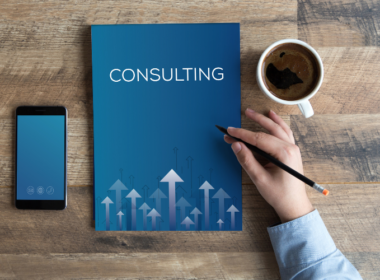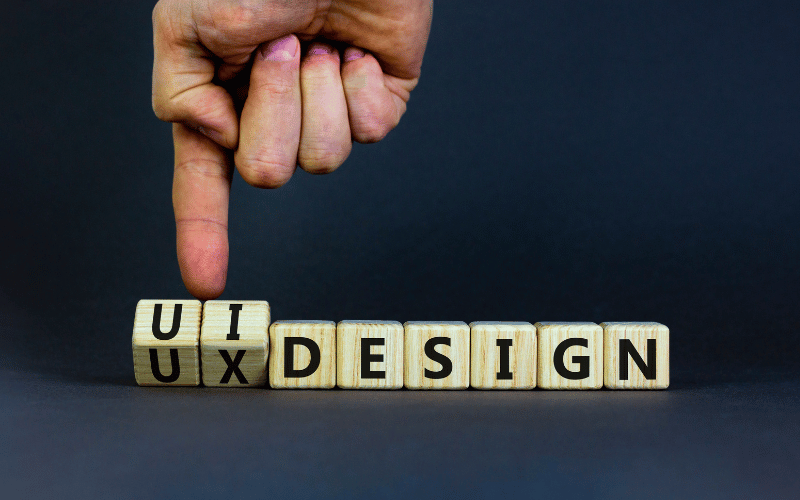As a CTO of an SME, have you ever found yourself puzzled by the complexities of blockchain technology and its implications for your digital assets?
Many SMEs struggle to unlock the potential of blockchain for asset tokenization, despite its growing prevalence in the business world. In fact, a recent report by MarketsandMarkets forecasts the global blockchain market to reach $94.0 billion by 2027, growing at a CAGR of 66.2% from $7.4 billion in 2022, indicating a rapid acceptance and integration of this technology across various industries.
This blog will guide you through understanding asset tokenization, highlight its benefits, and assist you in choosing the right blockchain platform to maximize your assets’ potential, positioning your business at the forefront of digital asset management.
Introduction to Asset Tokenization on Blockchain
Remember Bitcoin? The revolutionary digital currency that took the world by storm? Blockchain, the technology behind Bitcoin, has applications far beyond cryptocurrencies. One of its most exciting capabilities is asset tokenization.
This transformative process allows for the conversion of physical and intangible assets into digital tokens, fundamentally altering the way these assets are handled, traded, and perceived in the modern economy. It represents a significant evolution in blockchain technology, moving from a focus on digital currencies to enabling a wide array of financial applications.
Importance in Modern Finance
Asset tokenization is reshaping modern finance by providing unprecedented flexibility and liquidity. By converting assets into tokens, they can be easily split, traded, and managed on digital platforms. This opens up new investment opportunities and simplifies the processes involved in asset management, thereby enhancing capital flow.
For small and medium-sized enterprises (SMEs), this means access to broader markets and the ability to engage in financial activities previously reserved for larger corporations or specialized financial institutions.
Tokenization not only democratizes investment opportunities but also injects enhanced liquidity into markets, making it a crucial development for the future of financial transactions and asset management.
Read: The nuts & bolts for architecting Blockchain solutions
Understanding Asset Tokenization
While we’ve introduced asset tokenization as transforming assets into digital tokens, let’s understand what this means in practical terms.
Tokenization breaks down the rights to an asset—whether a tangible asset like real estate or an intangible one like copyrights—into digital tokens. These tokens effectively become tradable digital certificates of ownership, enhancing how assets are bought, sold, or traded. Key characteristics include:
- Divisibility: Tokenization allows assets to be divided into smaller units, making investment opportunities accessible to a broader audience by lowering entry costs.
- Liquidity: Tokens can be bought and sold on digital exchanges more easily than traditional assets, speeding up transactions and making capital more fluid.
Blockchain’s Role: How Blockchain Facilitates Asset Tokenization
Blockchain technology is fundamental to the process of asset tokenization, offering you a secure and transparent environment where your transactions are meticulously recorded and verified. Here’s how blockchain can enhance the tokenization process for your business:
- Decentralized Control: Blockchain operates on a decentralized network, which means that no single entity has control over the entire ledger. This significantly lowers the risk of fraud and central points of failure, enhancing the security of asset transactions.
- Immutable Ledger: Once a transaction is recorded on a blockchain, it cannot be altered or deleted. This immutability ensures that every transaction is permanently recorded, providing transparency and trust in the transaction history.
- Smart Contracts: These are self-executing contracts with the terms of the agreement directly written into code. Smart contracts automate and enforce the conditions of asset transactions, reducing the need for intermediaries and decreasing associated costs.
How Blockchain Benefits SMEs in Asset Tokenization
Now that we’ve covered the fundamentals of asset tokenization and its significance, it’s time to highlight the tangible benefits these blockchain platforms bring to your business.
By integrating blockchain, you can not only secure your transactions but also open doors to global markets and operational efficiencies that were previously challenging to achieve.
- Enhanced Security and Trust: You may often face challenges in establishing trust with potential partners and investors due to your size and relative obscurity. The enhanced security and decentralized nature of blockchain significantly reduce the risk of tampering and fraud, thereby bolstering trust in transactions involving your business.
- Cost Reduction: As a small business, you typically operate with limited budgets and can benefit immensely from the cost efficiencies brought about by blockchain. By using smart contracts and reducing your reliance on intermediaries, you can lower your transaction and operational costs, freeing up resources to allocate to other growth areas.
- Access to Global Markets: Blockchain enables you to reach a global audience by facilitating the tokenization of assets, which can be traded on international platforms without the typical barriers of cross-border transactions. This opens up new investment avenues and broadens your market reach.
- Improved Liquidity: Asset tokenization allows you to convert traditionally illiquid assets like real estate or proprietary technology into liquid tokens. This liquidity can be crucial for you as you look to leverage your assets for funding or reinvestment without the need to sell off valuable resources.
- Streamlined Compliance: Navigating the regulatory landscape can be cumbersome, especially if you’re expanding into new markets. Blockchain technology simplifies compliance by automating and standardizing regulatory processes across different jurisdictions. With smart contracts, you can ensure that every transaction adheres to relevant laws and regulations automatically, reducing the risk of compliance issues and the burden of manual oversight.
By integrating blockchain into their business models, SMEs can leverage these benefits to compete more effectively in their industries, enhancing their capabilities to manage assets and engage with a global investor base.
With these compelling advantages at your fingertips, the integration of blockchain into your business operations can redefine the way you manage and expand your asset portfolio.
As you navigate this transition, Codewave stands ready to be your guide. Our expertise in blockchain development is tailored to empower SMEs like yours to embrace innovation, ensuring that the benefits of blockchain technology translate into real-world success for your enterprise.
Top 5 Blockchain Platforms for Asset Tokenization
When considering asset tokenization platforms, it’s crucial to weigh their strengths and potential limitations in the context of your specific business needs. Here’s an assessment of the top five platforms to consider:
Fireblocks
Fireblocks is renowned for its high security and robust support for various tokens and digital assets. It’s designed to integrate seamlessly with existing financial systems, making it a favorite among financial institutions.
Pros:
- High security measures in place
- Compatibility with a diverse range of tokens and digital assets
- Strong reputation and industry backing
Cons:
- Slightly higher costs which might be a barrier for startups
- Potentially steep learning curve for those new to the platform
Chainlink
Chainlink is at the forefront of blockchain platforms, known for its leading decentralized data oracles which are vital for real-world data integration into blockchain applications.
Pros:
- Premier in providing reliable data oracles
- Broadly adopted across various blockchain applications
- Backed by a strong technical community and ecosystem
Cons:
- More data services oriented than solely focusing on tokenization
- Demands a certain level of technical skill for effective implementation
Flow by Dapper Labs
Created by Dapper Labs, Flow is a blockchain platform designed to enable consumer applications like games and digital collectibles with high throughput and user-friendly experiences.
Pros:
- Optimized for high-volume consumer applications
- Notable partnerships within the entertainment industry
- Engaged developer community and accessible documentation
Cons:
- Use cases may be limited outside of digital collectibles
- Limited financial asset management tools
Kaleido
Offering Blockchain as a Service, Kaleido provides robust enterprise features with significant cloud support and ease of use due to pre-built tools and integrations
Pros:
- Strong set of enterprise features coupled with cloud support
- User-friendly with a variety of pre-built tools and straightforward integrations
Cons:
- Higher operational expenses may be incurred
- Customization options may be less flexible for those requiring deep customization
Redbelly Networks
An emerging platform, Redbelly Networks is designed for high transaction speeds with low energy consumption and is focused on supporting green and sustainable blockchain projects.
Pros:
- Redbelly prioritizes fast transactions and sustainable energy use.
- Being in Australia, potential benefits in local support and services.
Cons:
- Newer entrant with limited adoption, posing risks.
- Lacks the community and support of established platforms.
Choosing the Right Blockchain Platform for Asset Tokenization
With a clearer picture of the top blockchain platforms, the next step is to evaluate and choose the right one for your specific business needs. This decision is critical as it impacts how effectively you can implement and benefit from asset tokenization.
Asset Type and Tokenization Needs
Different platforms cater to various asset classes. Consider the specific characteristics of your asset (security, real estate, art, etc.) and the functionalities you require from the token (ownership, fractional ownership, voting rights, etc.).
Comparison of Features

Examine transaction speeds, fees, and the reach of the network. Your business operations may depend on the efficiency and cost-effectiveness of these platforms.
Community Support and Platform Development
A strong developer community and ongoing platform development are crucial for long-term success. Look for platforms with active communities offering support and resources, and a development roadmap that demonstrates continuous improvement.
Read: Components and layers of a blockchain network
Future of Asset Tokenization on Blockchain
We’ve explored the exciting landscape of asset tokenization and the factors to consider when choosing the right platform. But the story doesn’t end there. As this technology continues to evolve, the future of asset tokenization on the blockchain promises to be nothing short of transformative.
Growing Need for Secure Platforms
The need for robust security will remain paramount. Buckle up for advancements in cryptographic protocols and consensus mechanisms, further solidifying the trust factor in blockchain-based asset tokenization.
Imagine a future where regulators collaborate with blockchain developers to establish standardized security frameworks, giving you even greater confidence in this technology.
User Experience Revolution
As asset tokenization becomes more mainstream, user-friendly interfaces and intuitive applications will be critical for broader adoption.
Platforms will likely integrate features like drag-and-drop token creation, streamlined KYC/AML processes (Know Your Customer/Anti-Money Laundering), and even gamified experiences. This will make token management effortless for everyone, not just tech-savvy users.
Interoperability Takes Center Stage
Currently, different blockchain platforms operate in silos. The future holds promise for improved interoperability, allowing seamless communication and asset transfer between various platforms.
You can get to experience a world where a tokenized share in a company can be easily traded on multiple exchanges, regardless of the underlying blockchain technology. This will unlock greater liquidity and flexibility for you as an investor.
Innovation Beyond Efficiency
While efficiency gains from streamlined transactions and reduced paperwork are undeniable, the future of asset tokenization extends beyond these basic benefits.
Blockchain’s programmability opens doors for innovative features like automated dividend payouts, smart contract-enabled voting rights for token holders, and even fractional ownership of previously indivisible assets like real estate or artwork.
Democratization of Finance
Asset tokenization has the potential to democratize finance by lowering investment barriers and increasing accessibility.
Imagine a future where you, as an everyday investor, can participate in previously out-of-reach investment opportunities, like owning a fraction of a multi-million dollar piece of art or a venture capital fund. This could fundamentally reshape how capital is allocated and empower you to participate in the global financial landscape.
Conclusion
As the CTO of an SME, the path you choose for asset tokenization can have a profound impact on your business. Blockchain platforms offer a myriad of benefits that can propel your company into a new realm of digital asset management. From enhancing the security and trust of your transactions to broadening your reach in the global market and improving liquidity, the advantages are clear.
Embrace the change, and let Codewave guide your steps into this bold new era.
With our expertise in blockchain technology and design thinking, we’re not just a service provider; we’re your strategic partner, dedicated to realizing your vision of innovation and growth. Whether it’s through custom smart contract development, seamless integration with existing systems, or guiding you in the selection of the right blockchain platform, we ensure that your journey in asset tokenization is both successful and transformative.
By leveraging platforms like the ones mentioned above, and more (Hyperledger, Ethereum, Corda, Hashgraph, Stellar), we don’t just connect your business—we enhance its intelligence and agility.
Why Choose Codewave for Your Blockchain Development Needs?
- Validate Your Vision: We specialize in crafting Proof-of-Concepts (PoCs) and rapid prototypes. This allows you to test your ideas quickly and efficiently, ensuring you’re on the right track before diving deeper.
- Multichain Expertise: Leveraging our experience as a trusted provider for Multichain development solutions, we possess in-depth knowledge of this leading platform. Additionally, our team is well-versed in building on frameworks like Ethereum, providing you with flexibility in choosing the best fit for your project.
- Smart Contract Savvy: Our developers are experts in crafting secure and efficient smart contracts, the backbone of any successful blockchain application.
- Beyond Multichain: Our expertise extends beyond Multichain. We have a strong understanding of Hyperledger, a versatile framework for enterprise-grade blockchain solutions.
- Wallets & Exchanges: Whether you need custom wallets for managing your tokens or seamless exchange applications, our team has the skills to bring your vision to life.
- The Power of AI: We’re constantly exploring the potential of artificial intelligence (AI) within the blockchain realm. Let’s explore how AI can enhance your project and unlock new possibilities.
- Business-Driven Results: We go beyond just building technology. Our focus is on ensuring your blockchain platform delivers tangible business results, aligned with your key performance indicators (KPIs).
So, if you’re ready to transform the trust dynamics of your business and lead in the age of digital finance, Codewave is your partner in this journey.
Connect with us today, and let’s create a blockchain solution that’s as dynamic and innovative as your business.








